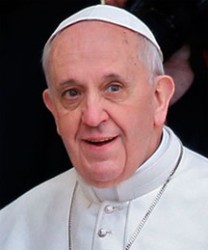VATICAN CITY, (Reuters) – Pope Francis set up a special commission of inquiry yesterday to reform the Vatican bank, his boldest move yet to get to grips with an institution that has embarrassed the Catholic Church for decades.

The high-powered, five-member panel, which includes four prelates and a female Harvard law professor, will report directly to him, bypassing the Vatican bureaucracy that itself has sometimes been hit by allegations of scandal and corruption.
The Institute for Works of Religion (IOR), as the bank is formally known, has long been tarnished by accusations that it has failed to meet international transparency standards intended to combat money laundering and tax evasion.
The Vatican said the commission, which Francis set up with a personal decree known as a “chirografo,” would enable him “to know better the juridical position and the activities of the Institute to allow an improved harmonisation with the mission of the universal Church”.
It said the commission would have full powers to obtain all documentation and data necessary and bypass usual rules that oblige officials to respect the secrecy of their office.
The decree ordered the commission to give its conclusions and all supporting documents directly to him.
The bank, founded in 1942, will continue to be run by current administrators and be overseen by existing regulators while the commission carries out its task.
Vatican spokesman Father Federico Lombardi said the bank was not being put under “special administration” but that the commission would have ample powers.
The announcement of the new commission came as Vatican sources confirmed media reports that Italian magistrates were








